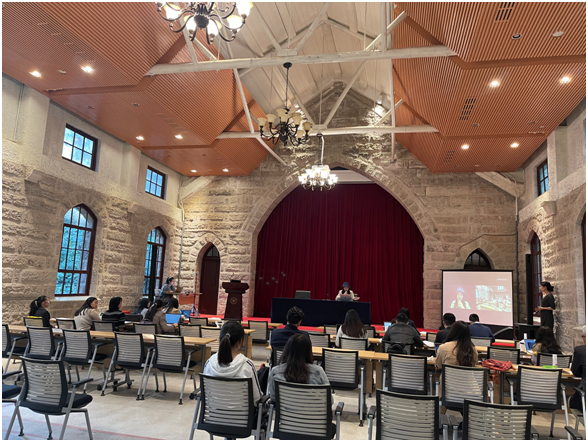- The Second China–Latin America and Caribbean Region Legal Professionals Exchange Program (Hangzhou Session) was successfully held at Zhejiang University.2025-12-18
- “If the World is a Family” — Student Exchange and Legal Practice Seminar between Newcastle Law School and Guanghua Law School2025-12-08
- LLM & SJD International Students of Guanghua Law School Attend Zhejiang International Legal Service Partnership Conference2025-12-04
From October 29 to 30, the 11th and 12th International Conference on the New Haven School of Jurisprudence was co-hosted as simultaneous online and offline sessions by the Academy for International Strategy and Law of Zhejiang University, Zhejiang University Guanghua Law School, Yale Law School, and Tulane Law School. The conference invited scholars and experts in the field of practice from China (including Hong Kong), Malaysia, Germany, the United States, Japan, Thailand, Singapore, Italy, India, France, Switzerland, Australia, Hungary, and other countries to participate in in-depth exchanges and discussions on the frontier and hot issues of the New Haven School as well as contemporary international law.
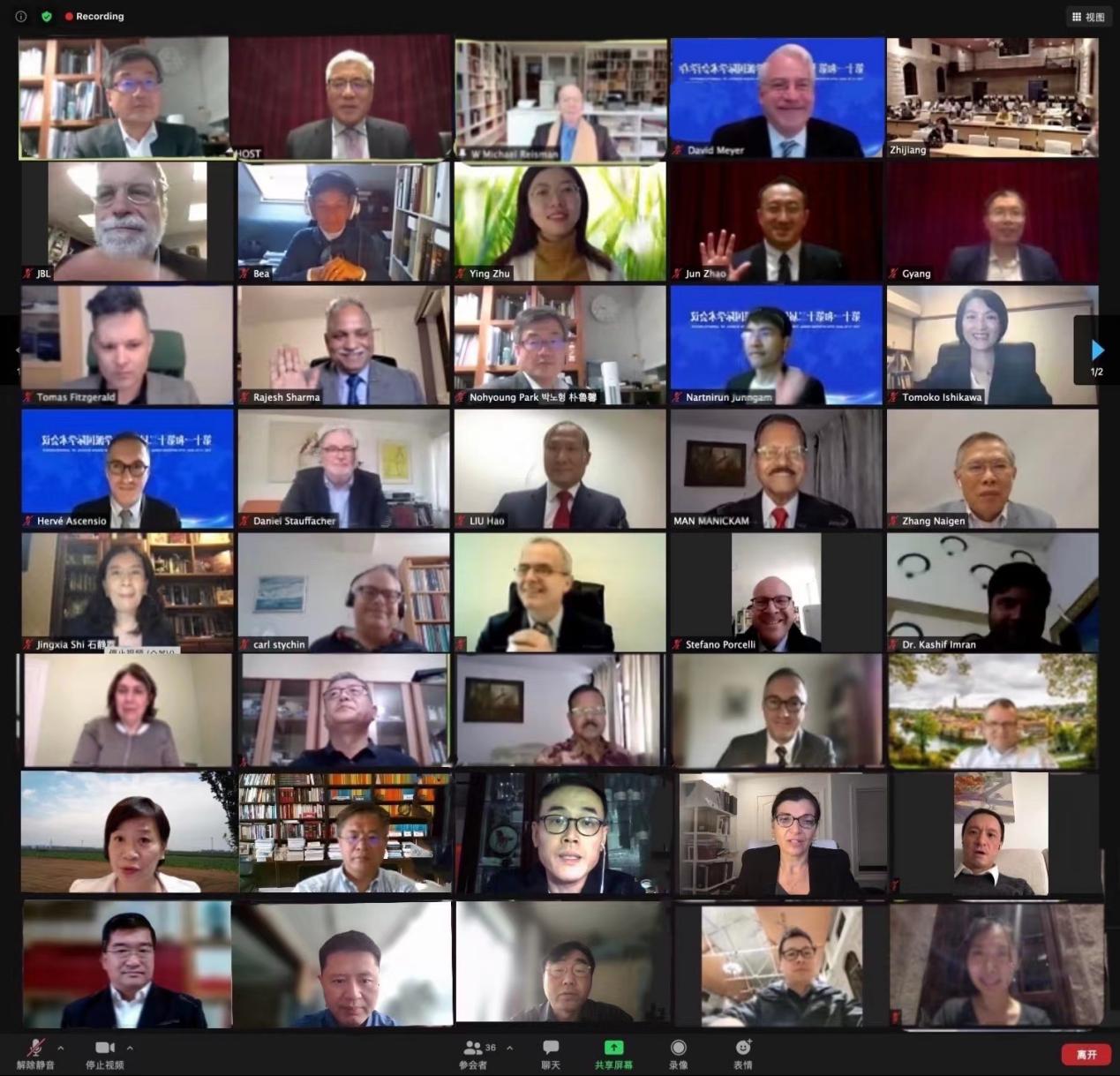
The opening ceremony of the conference was hosted by Professor Wang Guiguo, University Professor of Zhejiang University and President of Zhejiang University Academy for International Strategy and Law. On behalf of the organizers, Professor Wang Guiguo extended his sincere welcome to the distinguished guests.
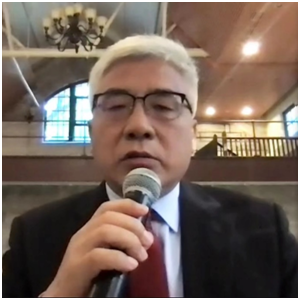
Myres S. McDougal Professor of International Law of Yale Law School W. Michael Reisman, Professor David Meyer, Dean of Tulane Law School, and Professor Wang Guiguo, President of Zhejiang University Academy for International Strategy and Law of, delivered speeches at the opening ceremony. Professor W. Michael Reisman expressed his sincere greetings to the attendees, stating that as the international community is facing numerous problems, "human dignity" has become increasingly important, and the New Haven School can make a greater contribution to the international community to address the current challenges. Professor Meyer said that the epidemic made us rethink our society and the world, including the legal order. In the current complex and fast-changing world, there is an urgent need to bridge the gap between different societies, and "human dignity" is of particular importance under such circumstances. Professor Wang Guiguo extended his heartfelt welcome to all the guests and attendees who managed to participate in the conference online and expressed his sincere gratitude to all of them for their continuous support to the Conference on the New Haven School. Professor Wang recalled that when the conference was first held in Hong Kong more than a decade ago, the New Haven School was rarely known by the Asian academic community. Through the unremitting efforts in over ten years, the New Haven School has gained widespread influence, and now the "human dignity" it advocates has been universally accepted worldwide; The concept of "human dignity" fits well with traditional Chinese culture and has long been rooted in Chinese society, so that it is logical and natural to host the International Conference on the New Haven School of Jurisprudence and International Law in China.
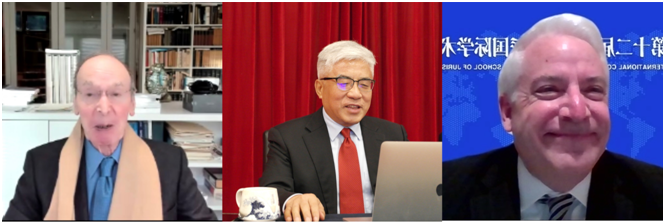
The first session of the conference was chaired by Professor Wang Guiguo, and Professor Michael Reisman of Yale Law School delivered a keynote speech online. Professor Reisman shared his views on the current international situation and the development of international law, arguing that our world is currently full of conflicts and fights, where many people are still struggling with wars and epidemics, and the security situation is more complicated than ever; the development of science and technology is a double-edged sword, which can improve such situation and accelerate the process of globalization, but in the meantime, it is also necessary to realize that things like smart weapons pose a greater threat to security. Professor Reisman believes that at this point and against such special backdrop, the international order is more dependent on the support of basic principles and common norms, and it is particularly important to pay attention to individuals, public interests as well as long-term interests of human beings. Professor Wang Guiguo responded to Professor Reisman's keynote speech, pointing out that the New Haven School have practical significance in solving various problems faced by the world today, and the decision-making process it implies and the pursuit of human dignity it advocates are important guidelines for enhancing the rule of law at the national and international level. Professor Zhao Jun of Zhejiang University Guanghua Law School and Rajesh Sharma, Senior Lecturer of Royal Melbourne Institute of Technology, participated in the Q&A of this session.
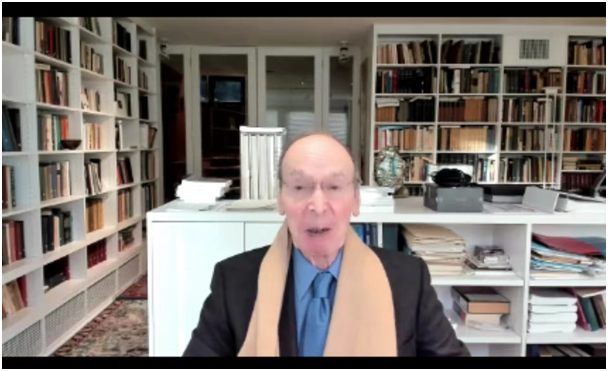
The first session of the conference was moderated by Datuk ManickhamSupperamaniam, former Ambassador of Malaysia to the WTO, with Professor Wang Guiguo and Jim Letten of Butler Snow Law Firm as discussants, who commented and exchanged views on the excellent reports on various topics such as cyber security and multilateralism in international law with Professor Nohyoung Park of Korea University, Professor Zhang Naigen of Fudan University, Dr. Daniel Stauffacher, President of the ICT4Peace Foundation and former Ambassador of Switzerland, and Professor Herve Ascensio of University of Paris 1 Pantheon-Sorbonne Law School.
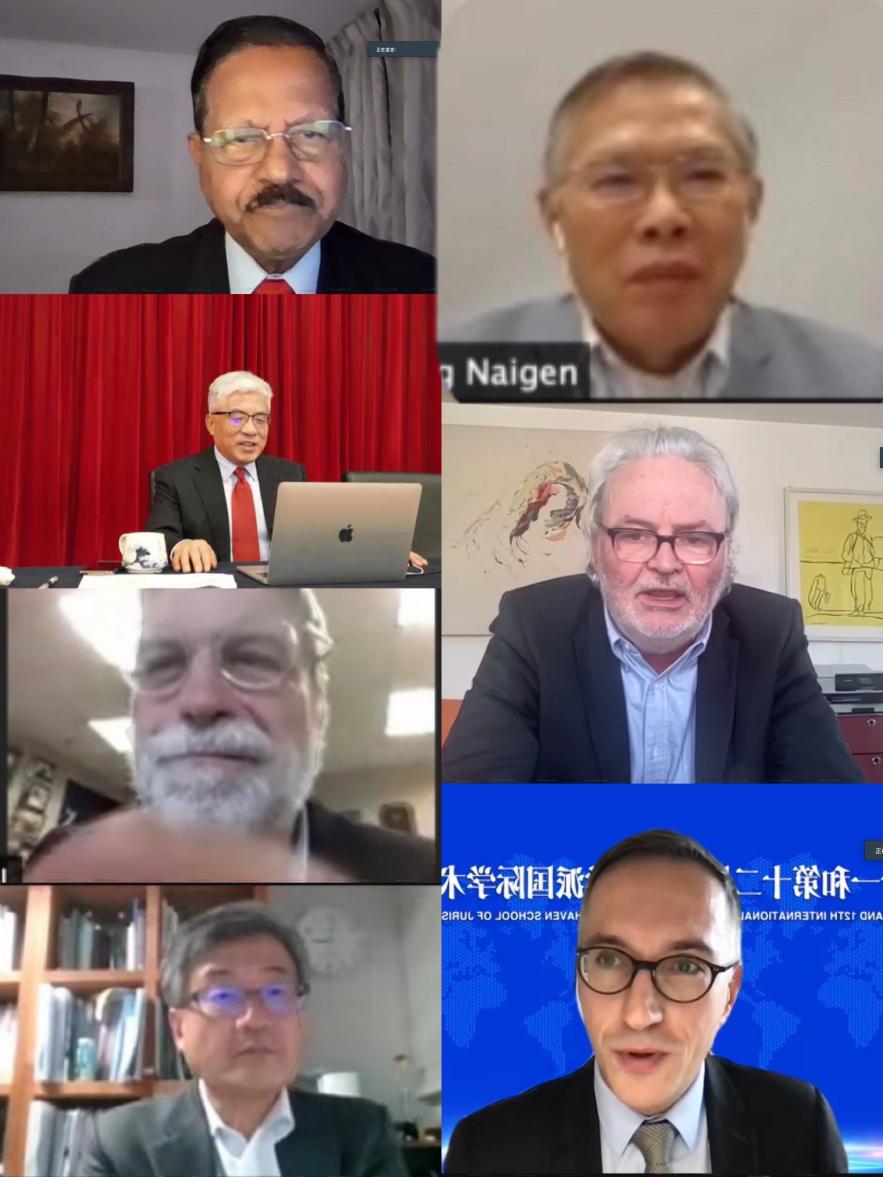
The second session of the conference was hosted by Professor David Meyer, Dean of Tulane Law School, and the discussants included Professor Chiara Giorgetti of University of Richmond, Professor Zhao Jun, Associate Dean of Zhejiang University Guanghua Law School, and Leung Mei-fun Priscilla, Member of the Legislative Council of HKSAR and Former Chair of the Judicial Committee of the Legislative Council of HKSAR, Barrister and Associate Professor, School of Law, City University of HongKong. Professor He Zhipeng, Dean of Jilin University School of Law, delivered a speech on the Chinese perspective of international law; Rajesh Sharma, Senior Lecturer of Royal Melbourne Institute of Technology, shared his latest research on legal issues related to energy economy; Professor Lori YI of Keimyung University School of Law, shared her research on "The Fourth Industrial Revolution and Legal Services"; Professor Tomoko Ishikawa of Nagoya University School of Law gave a speech on "Corporate Responsibility in the Investor-State Dispute Settlement"; and Professor Hong Yanqing of Beijing Institute of Technology explained the role of "security" in data protection by focusing on the data security law and personal information protection law in China.
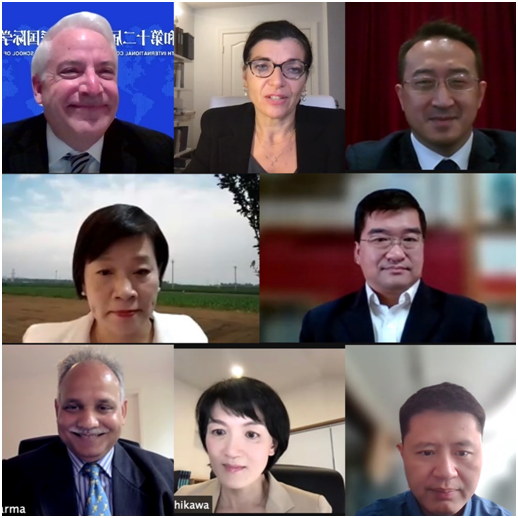
The third session was moderated by Professor Cheng Le, Executive Vice President of Zhejiang University Academy for International Strategy and Law, and the discussants included Professor Wang Zhiqiang, Dean of Fudan University Law School, and Professor Shen Wei, Distinguished Professor of Koguan School of Law of Shanghai Jiao Tong University. Professor Shi Jingxia from Renmin University of China Law School presented specific suggestions with regard to the crisis WTO is facing; Professor Zhang Qinglin, Dean of Shanghai University of International Business and Economics Law School, analyzed the investor-state dispute settlement mechanism and proposed reforms; Professor Yang Guohua from School of Law of Tsinghua University gave insights and comments on the role of WTO in Sino-US relations; Dr. NartnirunJunngam of Thammasat University started his discussion by international investment arbitration cases involving corporate restructuring, exploring whether it is reasonable for investment tribunals to apply the principle of "abuse of rights" in such cases and what legal consequences abusive corporate restructuring should bear.
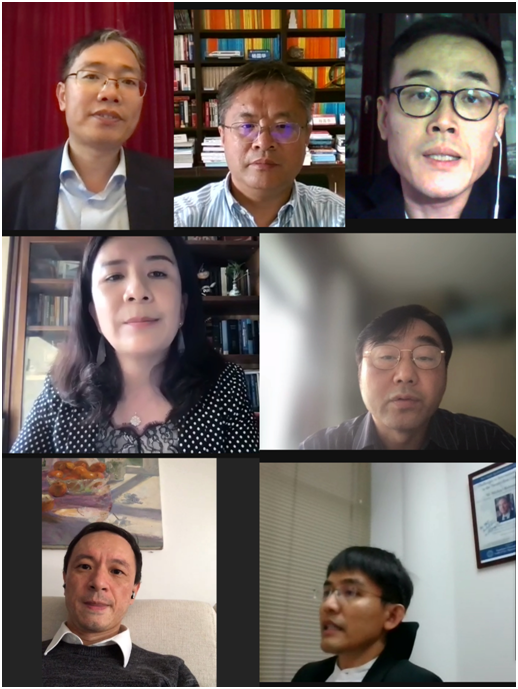
The fourth session was presided over by Researcher Liu Jingdong, Director of the Department of International Economic Law of Institute of International Law of Chinese Academy of Social Sciences, and the discussants were Professor Hahn Michael of Institute of European and International Economic Law of the University of Bern Law School, Professor Stefano Porcelli of Brescia University and Professor Carl Stychin of University of London. Professor Bea Verschraegen of University of Vienna evaluated and examined the 2019 case of Z.B. v. France of the European Court of Human Rights; Professor Jane Willems of School of Law of Tsinghua University analyzed the arbitration reform in China; Professor HajdúJózsef of University of Szeged explored the impact of artificial intelligence on the realization of Article 1 The Right to Work and Article 12 The Right to Social Security in the European Social Charter; Dr. Tomas Fitzgerald, Researcher at the University of Western Australia, discussed the connection between the New Haven School and traditional Chinese culture; and Dr. Zhu Ying, Assistant Professor at Renmin University of China Law School, discussed the relationship between international investment law and environmental law.
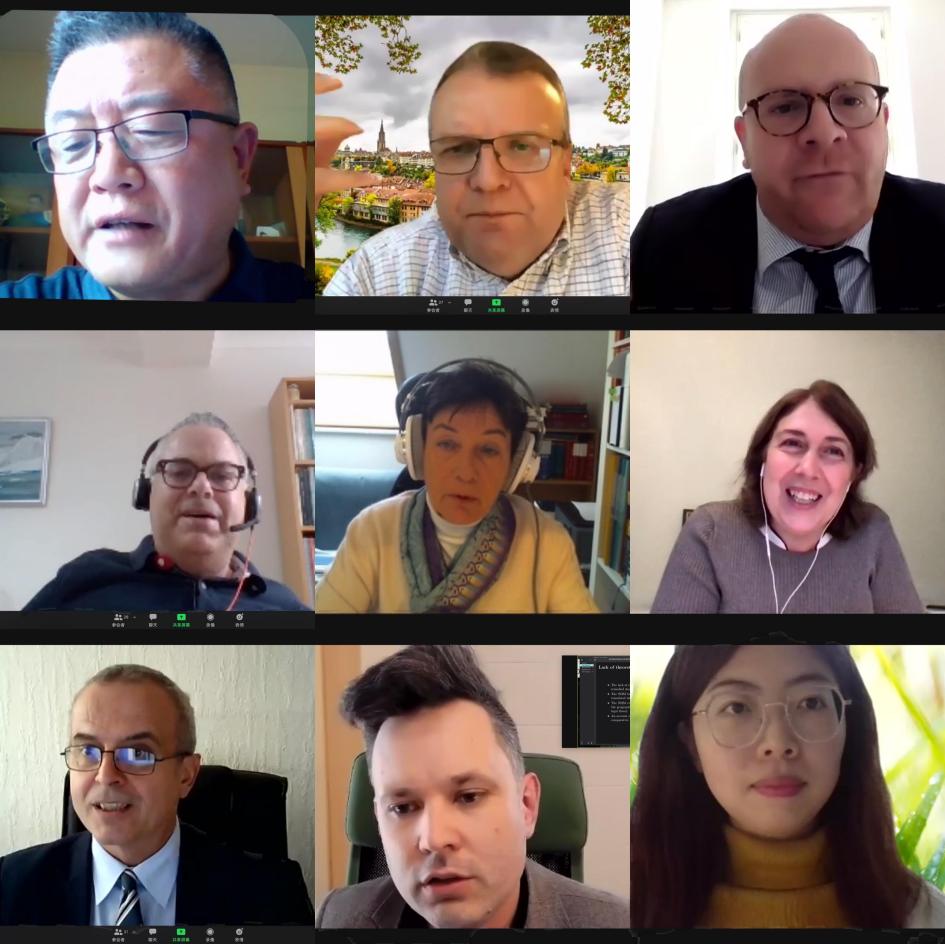
In addition to the above sessions, the Conference on New Haven School this year also featured a Student Forum, which provided an international platform for students to showcase themselves and share their views on issues pertaining to international strategies and legal frontiers. The Student Forum included three topics: International Investment and Trade, Discussions on Issues Related to Dispute Settlement and Public International Law, and Law and New Technology, which were chaired by Researcher Qian Xu of Zhejiang University Hundred Talents Program, Liu Yang, Assistant Professor of Renmin University of China Law School, and Liu Hao, Director of the Institute of Aviation Law and Standards of Beihang University, Professor and Doctoral Supervisor of Beijing Institute of Technology, and Secretary General of the Joint Authorities for Rulemaking on Unmanned Systems. The presenters included Wang Xin, Postdoctoral Researcher at Zhejiang University Guanghua Law School, and doctoral students Lou Lin, Dong Yao, Yang Zhaojun, Gu Tianjie, Liu Guowei, Yang Ziyan, Chen Zhuoer, Huang Shimin, Yin Miaomiao, Meng Lingchenyang, Ning Jing, Zhu Yongqian, and Xiao Yuqin.
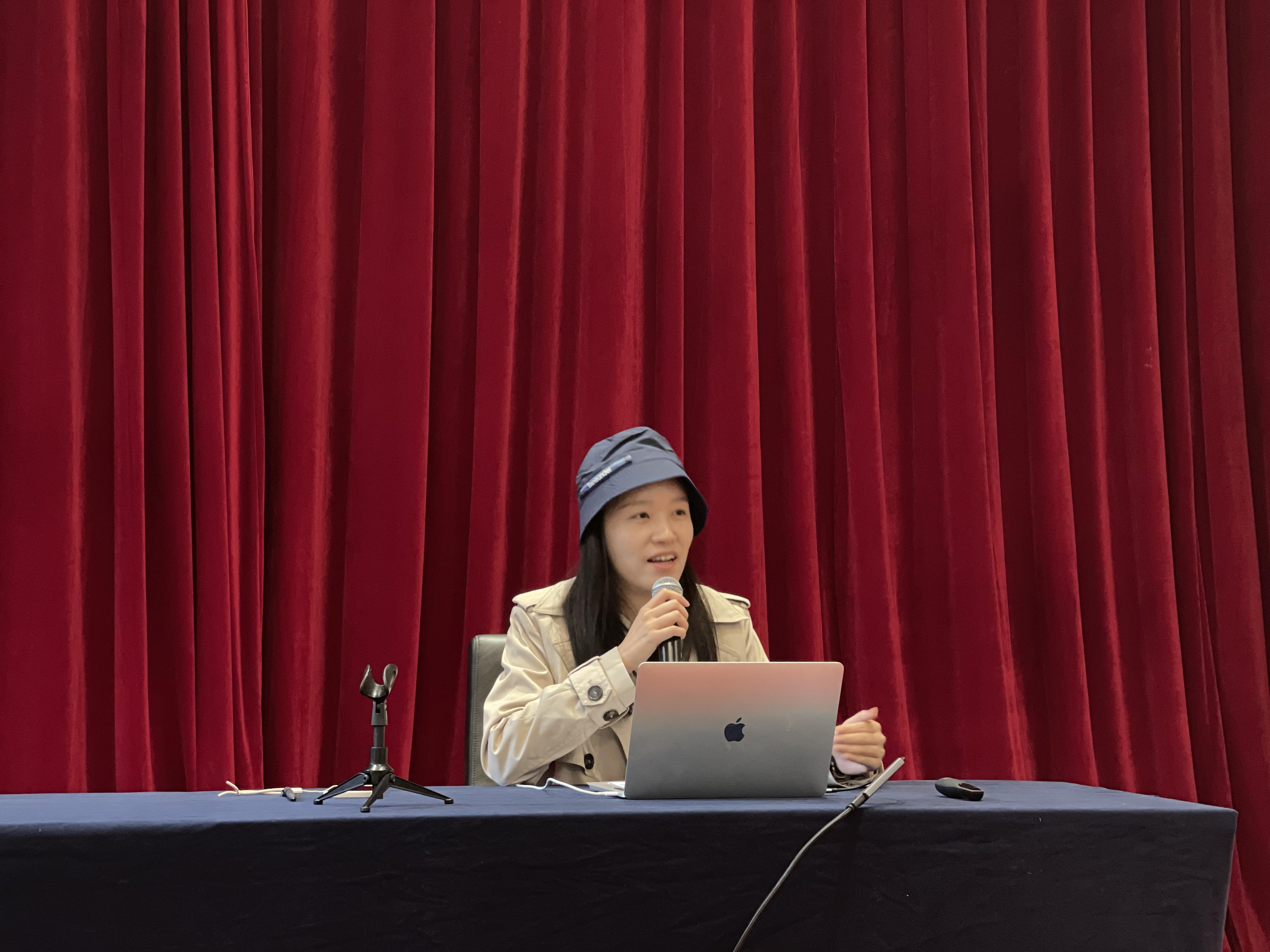
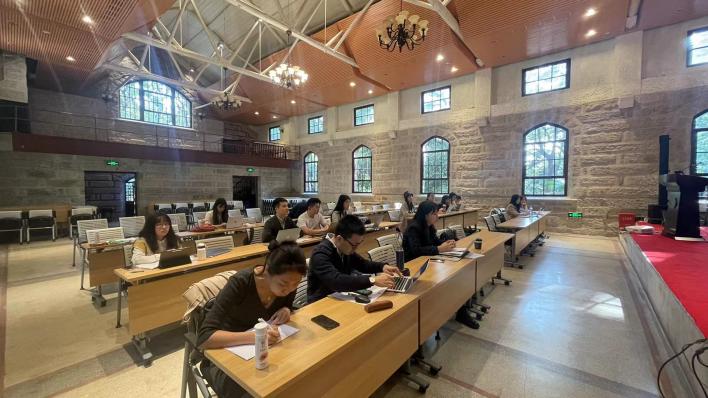
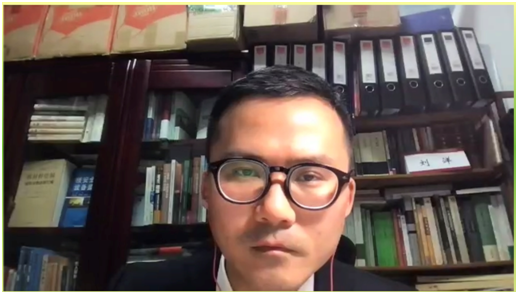
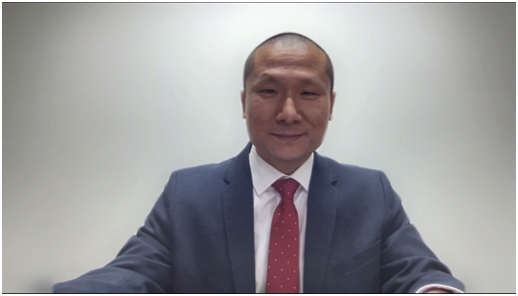
The closing ceremony was hosted by Professor Wang Guiguo, University Professor of Zhejiang University and President of Zhejiang University Academy for International Strategy and Law. Professor Wang Guiguo recalled the history and original aspiration behind the Conference on New Haven School and expressed his gratitude to all the experts and scholars attending the conference. He said that more than 60 scholars conducted in-depth dialogues and discussions with each other through online or offline sessions on many imperative frontier issues, which is exactly the whole point of the International Conference on the New Haven Schoolof Jurisprudence. Finally, he spokes highly of Liang Bingjie for leading the team to put themselves out of the way to successfully host the conference in spite of all the difficulties, and expressed his wish to resume friendships and share this academic feast with everyone in person next year!
As the fragrance of sweet-scented Osmanthus permeated Qianjiang River, the 11th and 12th International Conference of the New Haven School of Jurisprudence came to a successful end.
